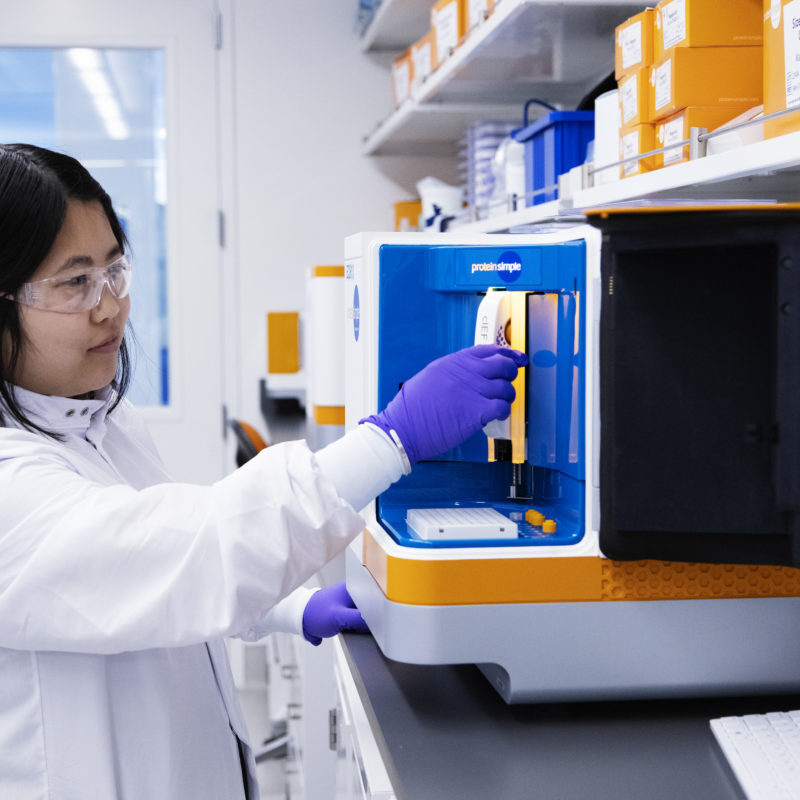Why Abzena?
Trust our focused approach.
TCED™ and iTope-AI support rapid screening of large protein libraries to guide immunogenicity assay development and identify candidates with lower immunogenicity risk. These tools complement in vitro immunogenicity assays, aiding in the design and optimization of deimmunized proteins and antibodies for safer biotherapeutic development.

iTope-AI is a proprietary in silico tool that models the interaction between amino acid side chains of a peptide and the binding pockets within the grooves of 46 human MHC Class II alleles (DR, DP, and DQ), with an optional human proteome filter. False negative and false positive rates are minimized through advanced machine learning algorithms.
The tool identifies the contribution of each amino acid to peptide binding, defining the core 9mer sequences that interact with the MHC Class II binding groove. iTope-AI provides an effective first step in immunogenicity assay development, supporting early assessment of potential T cell epitopes in antibodies and proteins. As with other predictive algorithms, it can overestimate CD4+ T cell epitopes, so it is most effective when used before in vitro immunogenicity assays such as EpiScreen® 2.0.
For known immunogenic amino acid sequences identified through T cell epitope mapping, iTope-AI can help design non-antigenic sequence variants by mutating key residues to disrupt MHC Class II binding and reduce immunogenicity risk.

Data from EpiScreen® 2.0 T cell epitope mapping studies collected over more than a decade have enabled the creation of TCED™, a curated database of CD4+ T cell epitopes. Sequences from antibodies and proteins in therapeutic development are compared against this database to identify homology to known epitopes, providing a rapid, in silico evaluation of potential immunogenicity risk.
The combined TCED™ and iTope-AI platform supports efficient immunogenicity assay development, enabling quick analysis of multiple sequences—such as therapeutic antibody candidates—to select leads with reduced immunogenicity potential before in vitro immunogenicity assays are performed.
iTope-AI is also available for MHC Class I analysis, supporting epitope identification in immunogenicity assays for vaccine design and evaluation.
TCED™ is Abzena’s T-cell epitope database built from more than a decade of EpiScreen® 2.0 immunogenicity assay data. It enables fast, accurate identification of known CD4+ T-cell epitopes.
iTope-AI models peptide-MHC Class II interactions, predicting potential T-cell epitopes early in immunogenicity assay development to focus later experimental testing.
Together, TCED™ and iTope-AI provide a complete in-silico platform that screens multiple sequences rapidly, reducing immunogenicity risk before in vitro immunogenicity assays.
In vitro immunogenicity assays like EpiScreen® 2.0 validate iTope-AI and TCED™ predictions, confirming T-cell responses and helping select safer, lower-risk candidates.